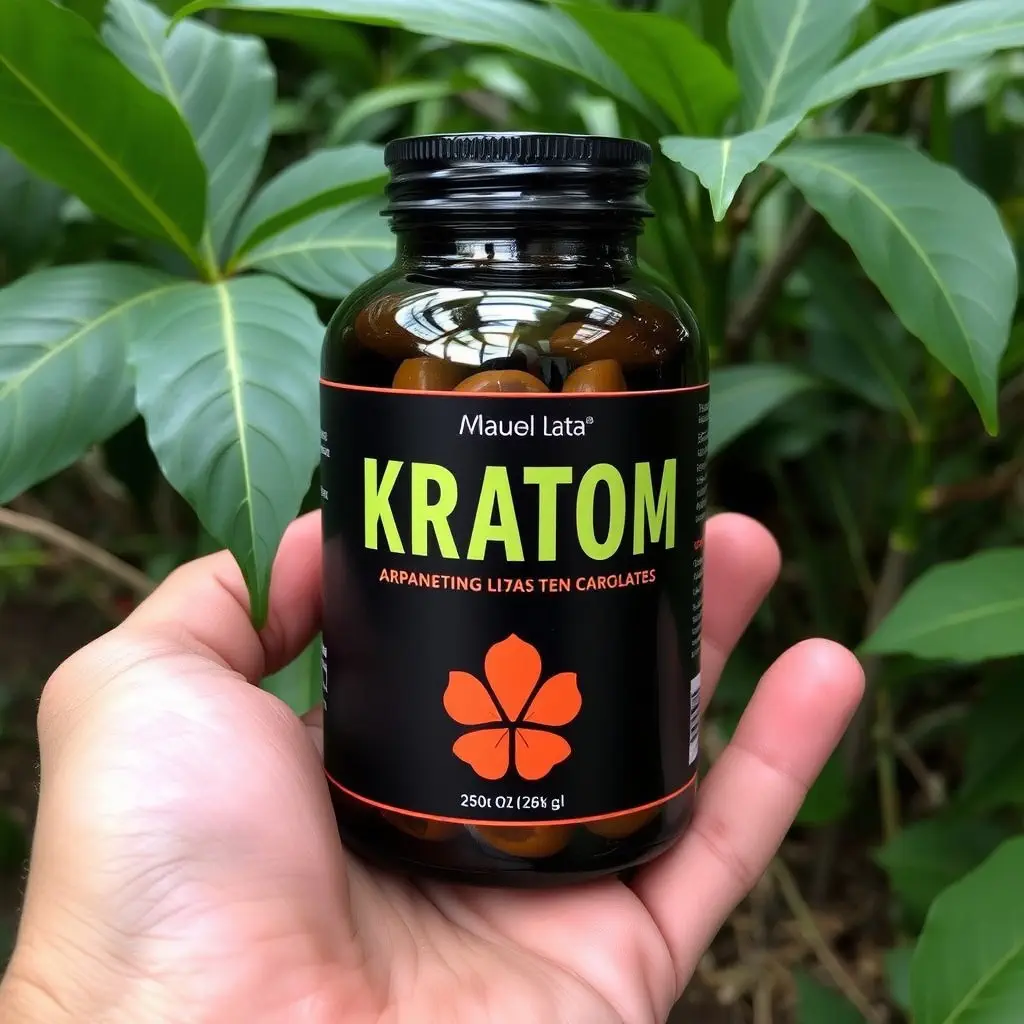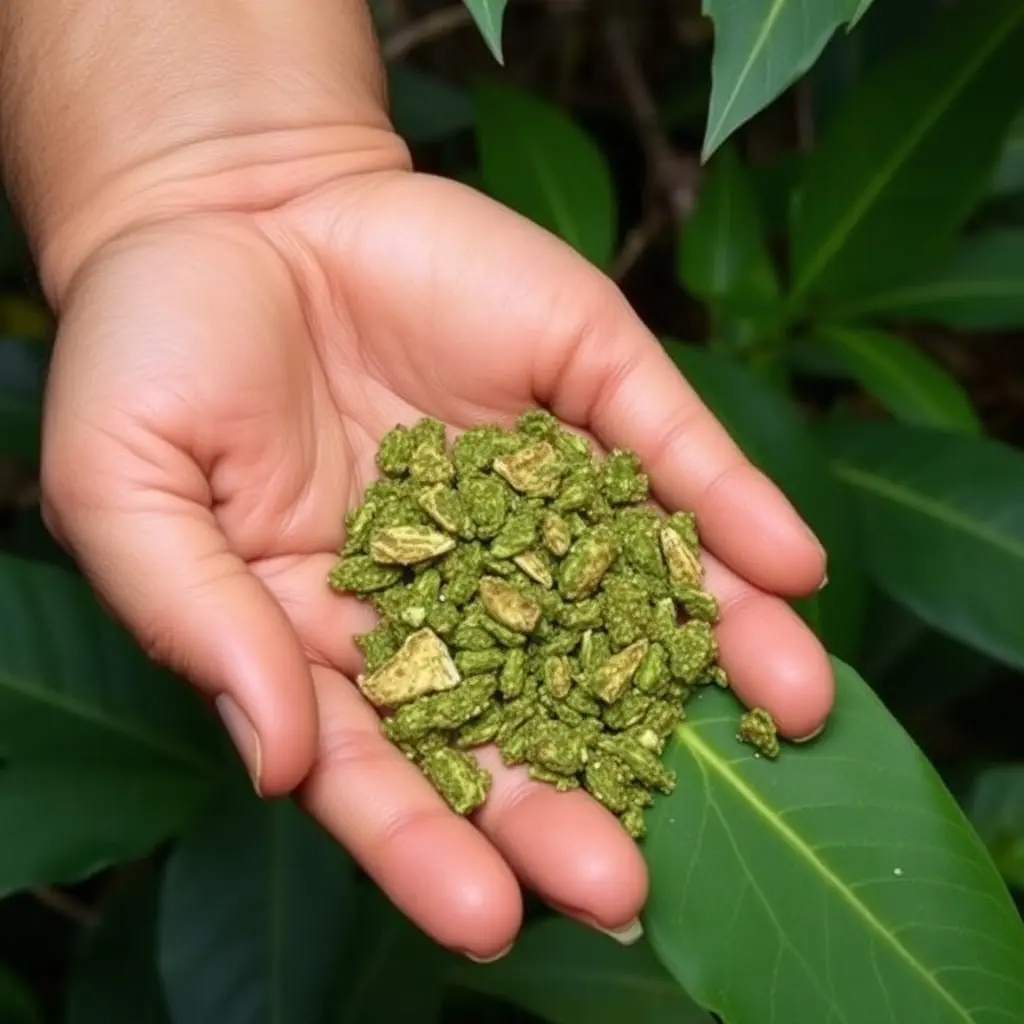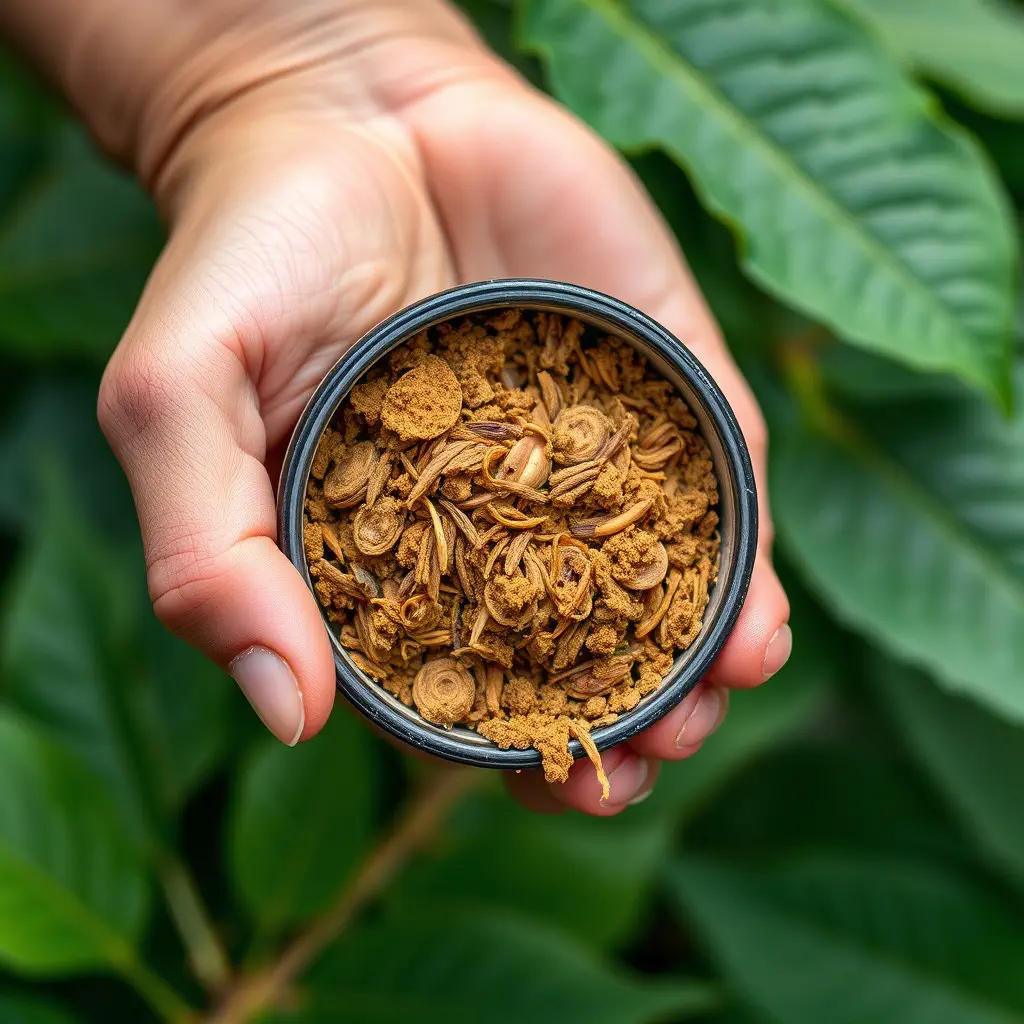Kratom, derived from Mitragyna speciosa, can be a multifaceted addition to sports nutrition, offering benefits for energy management, recovery, mood regulation, and stress reduction. It serves as a natural, caffeine-like stimulant without the jittery side effects, promoting sustained energy during training. For athletic recovery, kratom is particularly beneficial due to its role in facilitating restful sleep, which is vital for muscle repair, cognitive function, and overall well-being. This sleep quality improvement aids athletes by enhancing motor skills and mental focus, increasing endurance, and enabling more intense training without the risk of overtraining or injury. Additionally, kratom's effects on mood and stress can complement a focused mindset for optimal performance. However, it's essential to approach its use with caution due to individual variability in effects, legal considerations, and the need for professional guidance to ensure safe and effective integration into an athletic regimen. The key aspect of using kratom is for restful sleep, which can significantly contribute to recovery and performance enhancement when properly managed under expert supervision. Athletes should be mindful of the timing of kratom consumption to align with their daily activities, optimizing its stimulant or sedative properties as needed for energy or sleep, respectively. Always consult healthcare professionals before incorporating kratom into a sports nutrition plan to ensure alignment with personal health goals and legal compliance.
Kratom, a botanical extract from Southeast Asia, has garnered attention in the realm of sports nutrition, promising to elevate athletic performance and facilitate recovery. This article delves into the multifaceted role of kratom, exploring how it can be leveraged for enhanced sports performance through strategic nutritional planning. A significant aspect is its potential to promote restful sleep, a crucial element for endurance and recovery in athletes. We will guide readers on how to safely integrate kratom into their sports nutrition regimen, ensuring optimal benefits without compromising health or performance. Discover the synergy between kratom and nutrition, and how it can be a game-changer for your athletic pursuits.
- Unveiling the Role of Kratom in Enhancing Sports Performance Through Nutrition
- Kratom and Restful Sleep: The Cornerstone of Athletic Recovery and Endurance
- Integrating Kratom into a Balanced Sports Nutrition Plan: A Comprehensive Guide
Unveiling the Role of Kratom in Enhancing Sports Performance Through Nutrition

Integrating kratom into sports nutrition can have multifaceted benefits for athletes seeking to enhance their performance through optimized nutrition. Kratom, derived from the leaves of Mitragyna speciosa, has been traditionally used for its stimulatory and analgesic properties. For athletes who require sustained energy during training or competition, certain strains of kratom can provide a natural source of endurance without the jittery side effects often associated with caffeine. Additionally, kratom’s ability to promote a restful sleep is particularly advantageous for recovery and performance. Quality sleep is crucial for muscle repair and growth, as well as for cognitive function and overall well-being. By ensuring adequate recovery through restorative sleep facilitated by kratom, athletes can maintain peak physical condition, reducing the risk of overtraining and injury.
Furthermore, the role of kratom in sports nutrition extends beyond energy management and recovery. It has been suggested that kratom may help regulate mood and stress levels, which can significantly impact an athlete’s mental state and performance. A calm and focused mind is often as critical as physical conditioning for success in competitive sports. Kratom’s potential to support a balanced mood and alleviate performance-related anxiety could be a valuable addition to an athlete’s nutritional regimen, particularly when combined with proper training and dietary practices. However, it is essential to approach the use of kratom with caution, as its effects can vary among individuals, and its legality and purity may differ by region. Athletes should consult with a healthcare provider or a sports nutritionist before incorporating kratom into their performance enhancement strategy to ensure safe and effective use.
Kratom and Restful Sleep: The Cornerstone of Athletic Recovery and Endurance

Incorporating kratom into a sports nutrition plan can play a pivotal role in optimizing athletic recovery and enhancing endurance, particularly through its influence on restful sleep. Kratom for restful sleep is a significant aspect of post-exercise recovery as sufficient sleep allows for the necessary muscle repair, rehydration, and hormonal balance that are crucial for athletic performance. The alkaloids found in kratom leaves, such as mitragynine and 7-hydroxymitragynine, have been observed to promote relaxation and alleviate discomfort, which can facilitate a restful night’s sleep. This sleep quality is essential for athletes as it contributes to the improvement of motor skills, cognitive function, and overall physical health, all of which are vital components of an athlete’s preparation and performance. Additionally, consistent high-quality sleep has been linked to increased endurance by regulating the body’s energy balance and recovery processes, thereby allowing athletes to train harder and longer without overtraining or injury.
For athletes striving for peak performance, prioritizing restful sleep through natural supplementation with kratom can be a game-changer. It is important for athletes to consult with healthcare professionals before integrating kratom into their regimen, as dosage and individual sensitivity vary greatly. When used responsibly and in accordance with expert advice, kratom for restful sleep can be a beneficial addition to a sports nutrition plan, ensuring that the athlete’s body and mind are fully restored and ready to face the rigors of training and competition. This holistic approach to recovery not only supports the physical demands of athletics but also respects the natural processes of the human body, leading to sustainable performance improvements over time.
Integrating Kratom into a Balanced Sports Nutrition Plan: A Comprehensive Guide

When integrating Kratom into a balanced sports nutrition plan, it’s crucial to approach its use with a clear understanding of its effects and potential benefits. Kratom, derived from the leaves of Mitragyna speciosa, can influence an individual’s mood, energy levels, and pain perception—factors that can be particularly relevant for athletes seeking enhanced performance or recovery. One of the notable aspects of Kratom use is its ability to promote a restful sleep, which is essential for muscle repair and overall athletic recovery. Athletes often require a deep level of sleep to maximize their training and competition potential, and Kratom’s sedative properties at higher doses can contribute to this critical aspect of sports nutrition.
However, it’s important to use Kratom judiciously within the sports nutrition context. Its interaction with dopamine receptors can affect alertness and focus; thus, timing its consumption is key. For instance, strains that are more stimulating may be best taken before a workout to increase energy and endurance, while those with sedative properties should be consumed later in the day or closer to bedtime for optimal restful sleep. Additionally, since Kratom can interact with other supplements and medications, it’s advisable to consult with a healthcare provider or a sports nutritionist before incorporating it into one’s regimen. This step ensures that any addition to an athlete’s dietary plan is safe, legal, and effective in supporting their specific health and performance goals.
Incorporating kratom into a sports nutrition plan can be a strategic approach to enhancing performance and supporting recovery. This article has delved into the multifaceted role of kratom, particularly highlighting its benefits in promoting restful sleep—a critical component for athletic endurance and overall well-being. By understanding how to integrate kratom responsibly within a balanced diet tailored for athletes, individuals can optimize their sports performance and recovery processes. As a natural supplement, when used under guidance and as part of a holistic approach, kratom for restful sleep emerges as a promising aid for those in the athletic realm. With careful consideration and adherence to best practices, athletes can harness the potential of kratom to complement their training regimens and achieve their peak performance.






